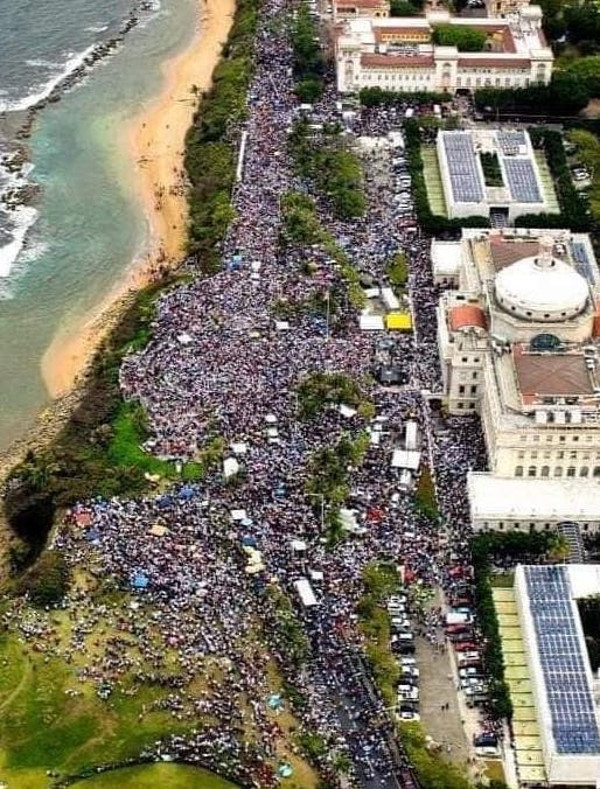
PHOTO/DONATED
SAN JUAN, PUERTO RICO —It was a hot month in July, slightly over a million people, close to a third of Puerto Rico’s current population, took to the streets and forced the resignation of their colonial governor, Ricardo “Ricky” Roselló Nevarez. “The Puerto Rican Summer”, as it’s been labeled, became a viral media phenomena. The event has being depicted as the “birth of a new Puerto Rico,” “a millennial youth-led rebellion,” and “a massive rejection of colonial parties politics.” While such depictions may or may not endure, and although it took place in a U.S. colonial territory, the process that sparked such an unprecedented event must be kept closely in mind because it may contain lessons of direct relevance to the lives of most working people here in the continental USA.
The proverbial straw that broke the camel’s back was a private chat room conversation between the now former Governor Ricardo “Ricky” Roselló Nevárez and his close associates in government, leaked by a disgruntled government official. The chat was peppered with insulting remarks about well-known public figures as well as impoverished workers and marginalized groups; it also shed light on the dark rooms of corrupt practices and conspiracies between private investors, publicists and leading government managers.
Angel M. Agosto, a veteran Puerto Rican political journalist, writer and organizer, compared the “Ricky, Renuncia” apparently spontaneous uprising to early 1970’s massive protests in which he was an active participant. “Popular uprisings always have a previous history that precedes it. These, apparently spontaneous rebellions can lead to great political transformations or they can end up forgotten,” Agosto warned.
Agosto describes the “Ricky Renuncia” movement as “an outburst of indignation,” a collective scream of moral outrage in an already exposed newscape of thievery and corruption acts within key government agencies such as Education and Treasury Departments, and ongoing harsh budget cuts in education, health services and workers’ pensions, imposed by a financial control board created by the USA Congress.
“These types of movements were foreseeable,” according to Agosto. “The capitalist system breeds its own gravediggers,” he sentenced. In Puerto Rico, as in the continental USA, the potential gravediggers of the ruling political and economic system as we know it are the previous generations’ children and grandchildren, who are now being excluded from getting jobs, condemned to precarious low paying part time work and forced to become indebted wage slaves, while automation eliminates jobs on a mass scale, leaving space for a very small group of specialized workers.
Following the “Renuncia Ricky” uprising, people’s assemblies are mushrooming throughout large cities and small towns across the island of Puerto Rico. Small but growing groups of people are challenging the current political parties system and demanding new ways of economic and social participation in an effort to get rid of the corrupt political elites and the exploitative colonial capitalist system that nurtures them. As Agosto suggests, only deepening levels of independent popular organization may avoid the fading of the ‘Ricky Renuncia” uprising into the dustbin of history.
